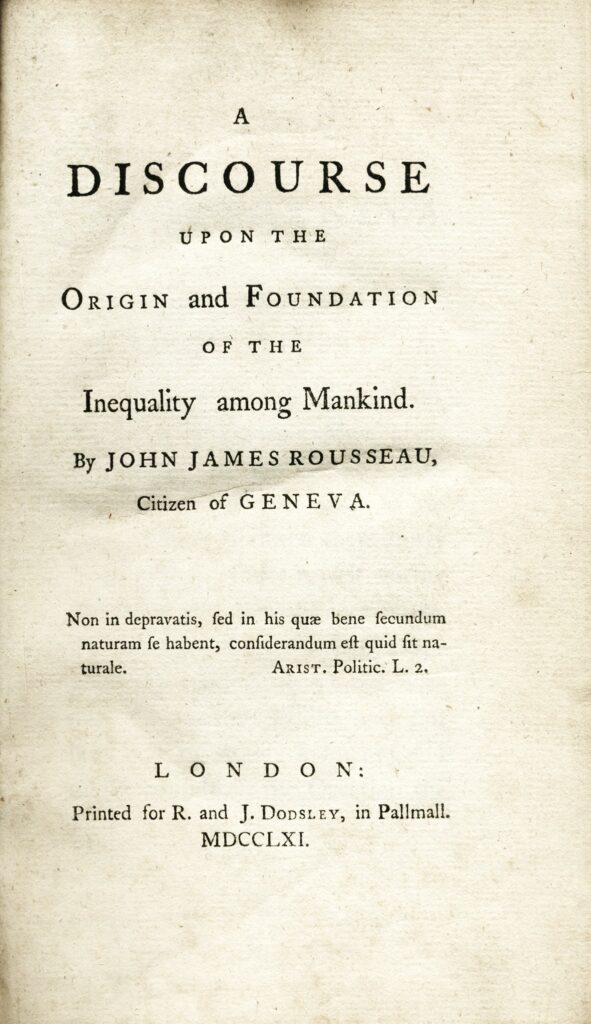First English translation of Rousseau’s early treatment of inequality, usually known as the ‘second discourse’, originally published as Discours sur l’origine et les fondements de l’inégalité parmi les hommes (1755).
‘The importance of this work has been indicated by Rousseau himself. In the Confessions he stressed that all the “strong ideas” contained in the Social Contract were present in the Discourse on Inequality … Here Rousseau sets forth his basic assumptions, his theory of man, of history, of society, and the principles of his understanding of Nature … Although he presented his thoughts more explicitly in such later and larger works, as La nouvelle Héloïse, Émile, and Du contrat social, he never again achieved the verve and the cogency which characterize the Discourse on Inequality … An investigation of the second discourse shows that it contains in nuce the chief ideas of his political philosophy. The Discourse on the Origin of Inequality is, therefore, of signal importance in assessing Rousseau’s doctrine, since the philosophy there set forth is presupposed in all his subsequent publications’ (Ulrich S. Allers, ‘Rousseau’s Second Discourse’ in The Review of Politics, Vol. 20, No. 1, pp. 91-120).

